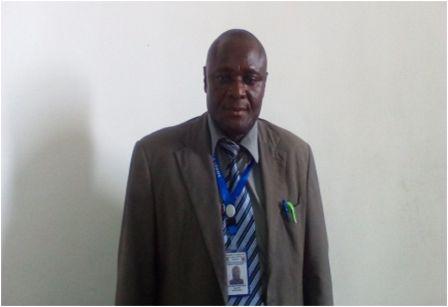African Partners Gather to Discuss HIV Viral Load Testing Programmes in Africa
CAPE-TOWN, South-Africa, April 26, 2013/ — More than 120 HIV clinicians, policy makers, and laboratory scientists gathered in Cape Town, South Africa from 18-20 April 2013 at the invitation of the African Society for Laboratory Medicine (ASLM) (http://www.aslm.org), the World Health Organization’s Regional Office for Africa (WHO-AFRO), the Joint United Nations Programme on HIV/AIDS (UNAIDS), the Society for AIDS in Africa (SAA), and the Southern African HIV Clinicians Society for a three-day consultation to discuss how best to design and implement effective and sustainable HIV viral load testing programmes in Africa. (Photo: Dr. Tsehaynesh Messele, ASLM Chief Executive Officer of the African Society for Laboratory Medicine (ASLM))
Convening under the theme “Viral Load Testing in African HIV Treatment Programmes,” healthcare professionals and stakeholders from more than 20 African Ministries of Health and other global partners developed consensus strategies for strengthening or expanding HIV viral load testing capacity in Africa; attendees also worked to enhance partnerships to support the scale-up of this important diagnostic test and monitoring marker of HIV infection.
“Viral load is the best tool we have for monitoring treatment success and deciding when to switch to new antiretroviral therapy (ART) medications,” said Dr. Gottfried Hirnschall, Director, HIV/AIDS Department, World Health Organization. “To better support people on ART and support the preventive benefits of ART in reducing HIV transmission, improving access to simple, affordable viral load testing in resource-limited settings is a priority for the coming years.”
“Ensuring that people living with HIV have access to safe and accurate monitoring of the virus is a basic human right,” said Michel Sidibé, Executive Director of UNAIDS. “Testing needs to be simpler, quicker, more cost effective and more widely available, only then will the full benefits of antiretroviral therapy be realised.”
As part of an overall effort to achieve an AIDS-free generation, many countries in Africa have started to adopt and implement HIV viral load testing programmes. A number of challenges exist which limit test access and cost-effectiveness. This consultative meeting aimed to:
- Develop strategies and recommendations for adopting and implementing HIV viral load testing policy, in consideration of World Health Organization guidelines;
- Review operational, technical and financial challenges to expanding access to HIV viral load testing in Africa, especially in difficult to reach areas;
- Discuss strategies for development of technical skills and technology transfer; and,
- Develop strategies to utilise existing capacity of and implement future point-of-care HIV viral load technologies.
Speakers and attendees included representatives from African Ministries of Health, the South African National Health Laboratory Service, World Health Organization, UNAIDS, United States Centers for Disease Control and Prevention, government global health programmes, private organisations and industry.
“As African health programmes continue to achieve marked success concerning patient outcomes, mature laboratory programmes remain integral to this achievement. ASLM is the first pan-African organisation committed exclusively to advancing and guiding laboratory medicine,” says Dr. Tsehaynesh Messele, ASLM Chief Executive Officer. “Laboratory services play a pivotal role in maintaining strong, healthy communities, part of which is monitoring HIV viral load in patients.”
Distributed by the African Press Organization on behalf of the African Society for Laboratory Medicine (ASLM).
Stay with Sierra Express Media, for your trusted place in news!
© 2013, https:. All rights reserved.






